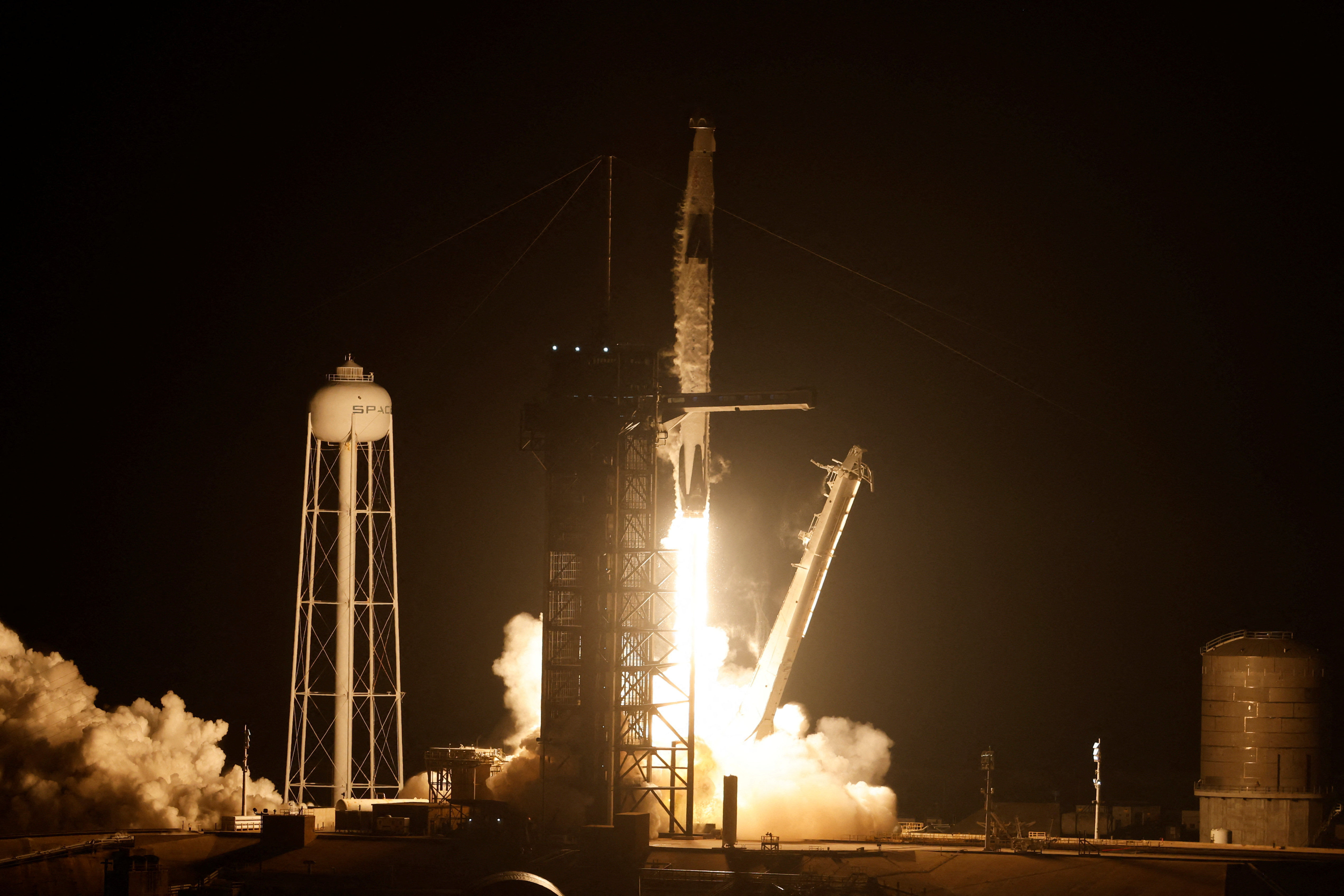EXPLAINED: India’s share in the global space economy is less than two per cent at present and the space policy will help it increase to 10 per cent in the future.
Also Read– Twitter Verified Follows ‘No One’; Unfollows All Accounts Amid Turmoil Over Blue Tick
The government on Thursday approved the Indian Space Policy 2023 that seeks to institutionalise the private sector participation in the space sector, with ISRO focusing on research and development of advanced space technologies.
The Indian Space Policy-2023, approved by the Cabinet Committee on Security chaired by Prime Minister Narendra Modi, also delineated the roles and responsibilities of
Read More:- All Hotels, Guest Houses And Dharamshalas Booked In Ayodhya On Sunday | Here’s Why
- ISRO
- space sector PSU NewSpace India Limited (NSIL)
- and Indian National Space Promotion and Authorization Center (IN-SPACe)
WHAT DOES THIS MEAN FOR SPACE OPERATIONS?
“In brief, the Indian Space Policy will offer clarity in the role of the components set up (in the recent past),” Union minister Jitendra Singh told reporters.
Singh said the policy will allow the private sector to take part in end-to-end space activities that include building satellites, rockets and launch vehicles, data collection and dissemination.
He said strategic activities related to the space sector will be carried out by NSIL, a public sector undertaking under the Department of Space, which will work in demand-driven mode.
Read More:- Centre’s High-level Covid Meet Today as India Sees 6,050 New Infections, Cases ‘Triple’ in 7 Days
When contacted, ISRO Chairman S Somanath told PTI that the focus of the Space Policy would be to increase the participation of the private players in the space sector.
The INSPACe, created recently, will be the interface between Indian Space Research Organisation and non-governmental entities, Somanath said.
He said the policy also spells out the framework for the private sector to use ISRO facilities for a small charge and also encourages them to invest in creating new infrastructure for the sector.
Somanath said ISRO will not do any operational and production work for the space sector and focus its energies on developing new technologies, new systems and research and development.
The operational part of ISRO’s missions will be moved to the NewSpace India Limited, a public sector undertaking under the Department of Space.
WHY IS THIS BEING DONE?
Somanath said India’s share in the global space economy was less than two per cent at present and the space policy will help it increase substantially to 10 per cent in the future.
Read More:- Centre’s High-level Covid Meet Today as India Sees 6,050 New Infections, Cases ‘Triple’ in 7 Days
“This is a historic moment as the cabinet has approved the Indian Space Policy 2023. It will pave the way forward with much-required clarity in space reforms and augment private industry participation to drive the space economy opportunity for the country,” Lt Gen A K Bhatt (retd), Director General Indian Space Association, told PTI.
Bhatt said the private sector had been waiting for the policy for quite some time and the announcement on Thursday came as a pleasant surprise.
Read More:- Centre’s High-level Covid Meet Today as India Sees 6,050 New Infections, Cases ‘Triple’ in 7 Days
WHEN DID SPACE PRIVATISATION START IN THE WORLD?
Throughout the second half of the twentieth century, outer space was the sole domain of national space programmes that were funded, directed, and managed by governments, as per reports. But as military applications of space and prestige projects such as Moon landings evolved (i.e. the Space Race between the US and Soviet Union), significant private sector firms already involved in the aviation industry acquired space contracts in the United States, albeit under the general leadership and control of NASA and the Pentagon.

The later decades of the twentieth century saw a considerable expansion of satellite-based telecommunication, navigation, broadcasting, and mapping, giving the space industry a significant commercial dimension.
As a result, private sector enterprises — Space X — began to play a larger role in the industry, such as independent space launches. Space X, which was hired for a space station resupply mission, currently launches more rockets per year than NASA, according to reports.
According to a report by Finance and Investment Cell of the Sri Ram College of Commerce, private players, however, would not have been able to succeed without government and state-backed company backing, as the majority of their contracts are related to launches, followed by satellites, and then research.
Also Read– Anil Singhvi shares ideas on which mutual funds to buy, recommends a minimum five-year horizon
For example, the report explains that Without NASA financing, SpaceX, would have gone bankrupt in 2008. NASA acts as a client by contracting private firms for operations and providing funds to them for research and development, operations, and other objectives.
A ‘SPACE-X FUTURE’ FOR INDIA?
The global space industry is worth over $500 billion, with the United States and China spending the most, according to a report by VICE. India currently accounts for only 2% of it.
Read More:- Want Loan At Cheaper Interest Rate of 0.83% Per Month? Check Muthoot Gold Loan
The report states that according to the Economic Survey of India, there have been over 100 active space companies since 2012. Many of them are currently vying for approval from the newly formed InSpace, or the Indian National Space Promotion and Authorisation Centre, an institution that serves as a liaison between ISRO and private sector enterprises.
Vinod Kumar, director of promotions at InSpace told VICE last year that the department has received over 150 applications from private space enterprises since 2020. He forecasts that India would account for at least 10% of the global space economy in the next decade, up from 2% now.
Pawan Goenka, chairman of IN-SPACe stated in an interview last year India’s “SpaceX-like initiatives” were not far from realisation with the policies in tow.
Read More:- Centre’s High-level Covid Meet Today as India Sees 6,050 New Infections, Cases ‘Triple’ in 7 Days
And as per a report by Mint, allowing private companies to perform space missions has benefited nations such as the United States by promoting private sector investment. For example, Elon Musk’s SpaceX’s reusable Falcon 9 rockets have become a popular choice for space missions around the world.





































